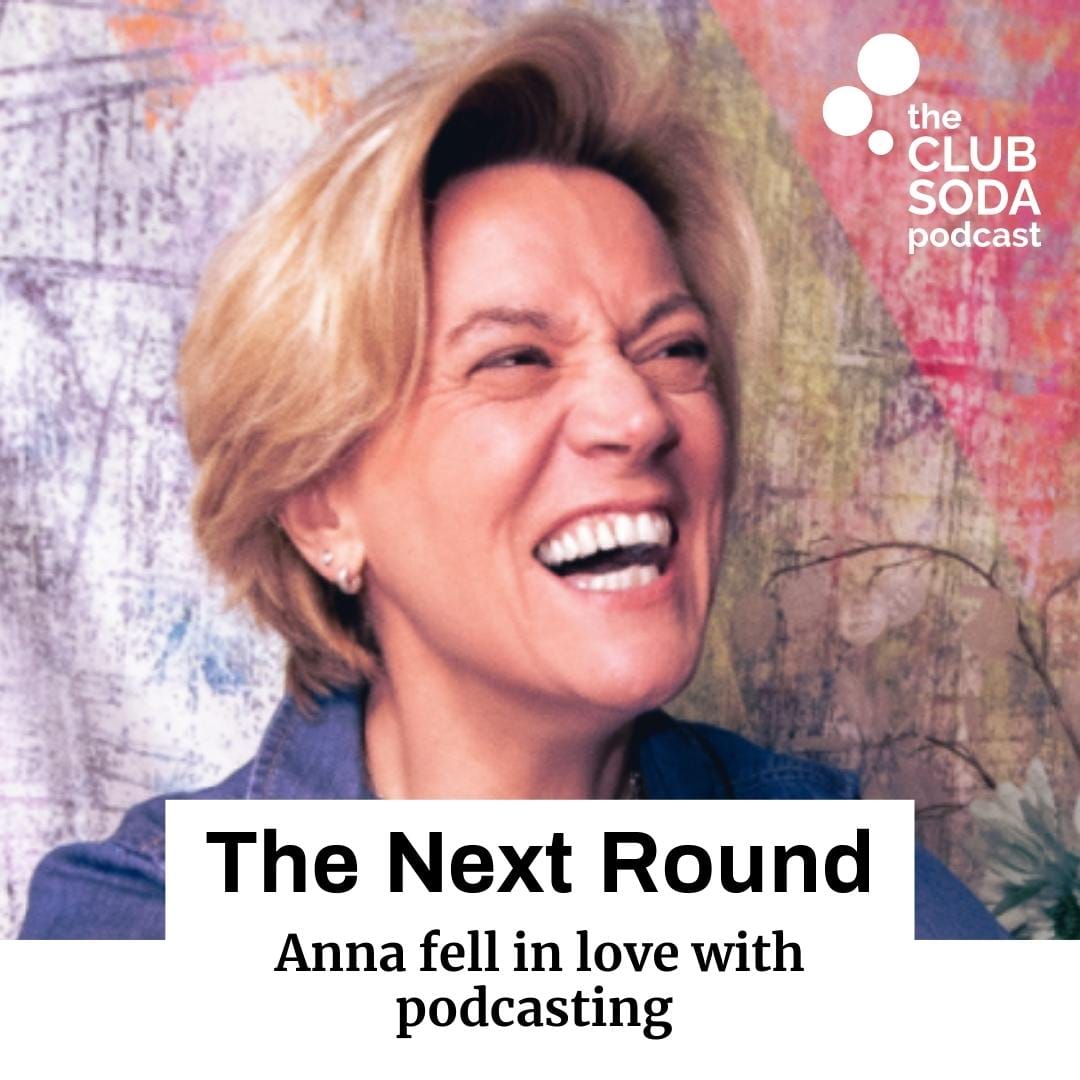
This website uses cookies to improve your experience. We'll assume you're ok with this, but you can opt-out if you wish. Read More
The Next Round: What happens after you change your drinking?
The first of many surprises that people often report after going sober is a new intensity of everyday experiences – life in high definition. Whether it’s happiness, tiredness, sadness or boredom, emotions that are no longer masked by alcohol become pure and unadulterated. Instead of creeping up on you, they knock you for six until you are stunned that life could be so – well, life-like.
Living life in High Definition (or HD) is a result of retraining your brain to deal with emotions without the aid of an ethanol-related lubricant. Admittedly this is no easy feat – we are accustomed to using alcohol to deal with every emotion and occasion that occurs. Christmas? Have a drink. New job? Have a drink. The end of a relationship? Birthday? Passed an exam? Failed an exam? The list of “reasons I could justify a glass of something” that we give ourselves is pretty much infinite. So, when you cut down, give up drinking or are preventing a lapse, a significant step in the “letting go” process is uncoupling alcohol with your emotions.
We drink both because we are happy and to make ourselves happier. If we are excited, thrilled or confident, we drink to reinforce and sustain these feelings. Studies that have attempted to quantify alcohol and happiness show that, while drinking can make you feel happier in the moment, long-term life satisfaction remains the same, and in some cases even decreases. Ben Baumberg Geiger from The Conversation encourages you to work out the real meaning of the “pleasure” you feel when drinking, which might not even be pleasure at all. Alcohol-induced happiness is fleeting. Feeling the real thing – your entire life in high definition – counts for a much more varied and authentic experience.
According to Drugs and Alcohol Information Support, the most popular reason for higher than average alcohol consumption is for coping purposes or emotional escape. It is not uncommon to be reluctant to face up to unhappiness or fear, make decisions about them, or even think about them. Alcohol is often used as a tool to numb negative or undesirable emotions, so when you quit, all the bad feelings become completely undiluted. It is being unable to mask these emotions that often causes drinkers to return to alcohol as a safety net. In The Sober Man’s Guide to Living Experimentally, Niall Doherty explains how alcohol hindered him from developing real confidence, until he was driven to find it within himself rather than in the bottom of a pint glass.
Not drinking for birthdays, Christmases and New Year celebrations can make occasions seem like a huge anti-climax. We’re so used to toasting a life event with a glass of bubbly that skipping this ritual can make the whole celebration feel a bit lacking. Part of uncoupling alcohol with your emotions means reworking these habits and creating new ones. Fix journalist Julie Elsdon-Height attests that being sober will not make an occasion worse, and that realising this is enough to alleviate anxiety. More important than pursuing an extensive cocktail bar is knowing that your friends will enjoy your company, with or without alcohol.
This website uses cookies to improve your experience. We'll assume you're ok with this, but you can opt-out if you wish. Read More
| Name | Domain | Purpose | Expiry | Type |
|---|---|---|---|---|
| wpl_user_preference | joinclubsoda.com | WP GDPR Cookie Consent Preferences. | 1 year | HTTP |
| PHPSESSID | www.tickettailor.com | PHP generic session cookie. | 55 years | HTTP |
| AWSALB | www.tickettailor.com | Amazon Web Services Load Balancer cookie. | 7 days | HTTP |
| YSC | youtube.com | YouTube session cookie. | 55 years | HTTP |
| Name | Domain | Purpose | Expiry | Type |
|---|---|---|---|---|
| VISITOR_INFO1_LIVE | youtube.com | YouTube cookie. | 6 months | HTTP |
| Name | Domain | Purpose | Expiry | Type |
|---|---|---|---|---|
| _ga | joinclubsoda.com | Google Universal Analytics long-time unique user tracking identifier. | 2 years | HTTP |
| sbjs_migrations | joinclubsoda.com | Sourcebuster tracking cookie | 55 years | HTTP |
| sbjs_current_add | joinclubsoda.com | Sourcebuster tracking cookie | 55 years | HTTP |
| sbjs_first_add | joinclubsoda.com | Sourcebuster tracking cookie | 55 years | HTTP |
| sbjs_current | joinclubsoda.com | Sourcebuster tracking cookie | 55 years | HTTP |
| sbjs_first | joinclubsoda.com | Sourcebuster tracking cookie | 55 years | HTTP |
| sbjs_udata | joinclubsoda.com | Sourcebuster tracking cookie | 55 years | HTTP |
| sbjs_session | joinclubsoda.com | SourceBuster Tracking session | Session | HTTP |
| Name | Domain | Purpose | Expiry | Type |
|---|---|---|---|---|
| mailchimp_landing_site | joinclubsoda.com | Mailchimp functional cookie | 28 days | HTTP |
| __cf_bm | tickettailor.com | Generic CloudFlare functional cookie. | Session | HTTP |
| NID | google.com | Google unique id for preferences. | 6 months | HTTP |
| Name | Domain | Purpose | Expiry | Type |
|---|---|---|---|---|
| _ga_10XZMT03ZM | joinclubsoda.com | --- | 2 years | --- |
| AWSALBCORS | www.tickettailor.com | --- | 7 days | --- |
| cf_clearance | tickettailor.com | --- | 1 year | --- |
| VISITOR_PRIVACY_METADATA | youtube.com | --- | 6 months | --- |
Join Club Soda for 10% off your first order of drinks for UK delivery. Plus get our latest news and special offers for members to choose better drinks, change your drinking and connect with others.
If you get an error message with this form, you can also sign up at eepurl.com/dl5hPn